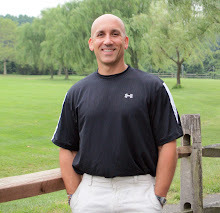I recently came across an article by Clarence Ross which was published in 1953. The title of the article was “Speed & Endurance” and in it Clarence has a conversation with a young athlete who’s apprehensive about strength training as it might “bulk him up too much and slow him down” for his athletic performance. I found the topic quite interesting, as when I ventured into the world of training back in the early to mid 70’s (yes, I’m that old) and as a high school basketball player, I was told to run away from weights as fast as I could because it would make me muscle bound and stunt my growth – which, at only 5’7” I couldn’t afford any more stunting. Fortunately, I ignored the myths and naysayer’s and went head first into training using Nautilus equipment and The Nautilus Principles, as they were referred to back then. Training didn’t hurt my game one bit, in fact, it helped out tremendously as an aggressive shooting guard, I didn’t mind penetrating the lane and getting smacked around and was certainly not shy about mixing it up under the boards to try and get rebounds or at least, box some of the larger guards and forwards out. I found that I didn’t get fatigued as quickly and I could play ball for hours. My quickness had improved and I seemed to use less energy to make things happen on the court.
So, let’s get back to my initial point and what prompted this. Well, a lot of people think speed and endurance are developed by lifting weights fast, running with resistance (sled, weight vest, bands, etc), doing tons of miles on the road or some type of agility/plyometric type training. The real truth, however, is based on a few criteria that will be much safer, efficient and effective to improve speed and endurance.
1) You need to be strong. A stronger body (not just legs) will enable you to perform a task easier so you will express ore power AND you will use less energy doing it. A win-win situation.
2) You need to know how to perform your skill properly. Take identical twins that are the same size, weight and strength levels. One plays football, the other doe not. Who do you think will have more speed on the football field? The one with more knowledge and experience as he knows how to react quicker and can anticipate plays thereby giving him the edge up on speed and quickness, and to a degree endurance as he knows when he can steal some rest between plays.
3) You need to make “perfect practice” to engrain the behavior and at the same time build sport-specific cardiovascular endurance which is best achieved by playing your sport or activity EXACTLY as you would in competition.
I’ll close with an excerpt from the Clarence Ross article, which, in 1953 was spot on as it is still today. Unfortunately, many coaches and athletes find the need to complicate what is as simple as 1-2-3. Here are Clarence’s thoughts as he expressed them to this young man.
“After all, what is speed other than power in motion? In other words, there can be no speed without a motor power of some sort. In the body, the muscles provide this power. The better trained the muscles are, the more power they will possess.
“And what is endurance other than a continuation of motor power over a period or time? Endurance is based completely upon body power, for weak muscles cannot possess the reserve energy for sustained action. Only powerful and well-trained muscles can keep going in active sports for some period of time without growing exhausted. So here too, it makes sense to realize that well-trained muscles possess endurance.
“But there is still one other factor . . .coordination. Without coordination you can have all the power in the world and still not be able to use this power efficiently. Since muscular coordination is developed through training the various muscles of the body to work in harmony, it stands to reason that any method of exercise which develops MUSCULAR PROPORTION will give the individual a balanced type of power and extremely good coordination.”
Well stated Mr. Ross, well stated.
skip to main |
skip to sidebar
"Fred Fornicola is a training innovator and writer in an industry full of restricted thinking. He has listened, viewed, tried, and assimilated just about everything the world of exercise has put forth over the decades. His voice is
one of the few that keeps people's attention." - Randy Roach, Author of Muscle, Smoke and Mirrors
one of the few that keeps people's attention." - Randy Roach, Author of Muscle, Smoke and Mirrors
LINKS
ARCHIVE
-
▼
2010
(83)
-
▼
August
(14)
- Well Worth the Investment
- Dumbbell Training Videos
- The Saturday Morning Crew kicked butt as they perf...
- An 8 Week Training Cycle
- Massage by Marcos
- Some Words from the "Elite"
- No Time to Train? Really?
- Click here to take the Premiere Personal Fitness S...
- What A Ride....
- Youth Fitness Special
- "Fred Fornicola is a trainer. Wait, you say. You ...
- "On-Line" Training
- Speed and Endurance Simplified
- "Use exercise as a means of improving your health ...
-
▼
August
(14)


